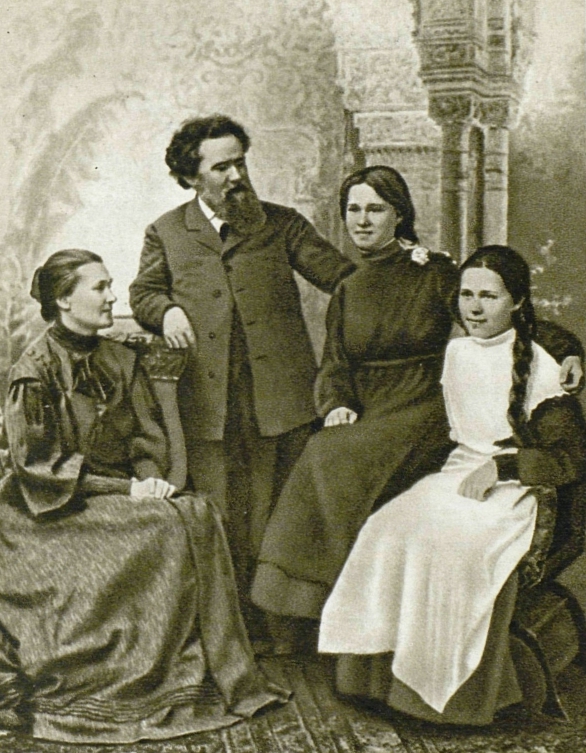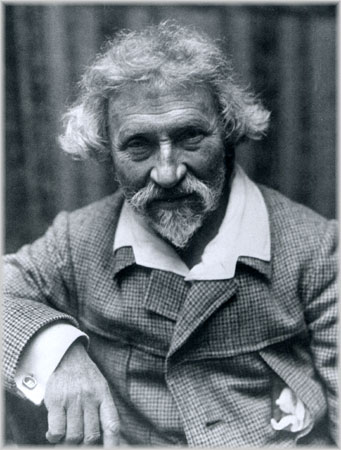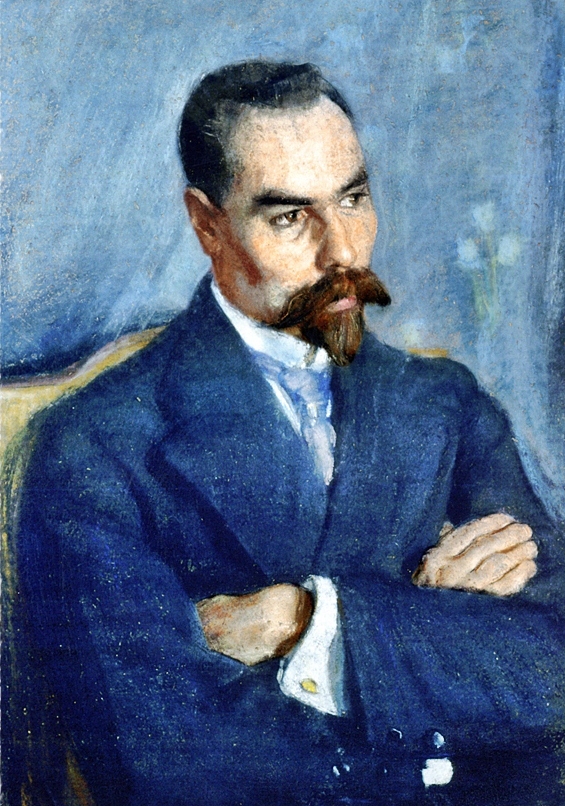|
Fyodor Batyushkov
Fyodor Dmitrievich Batyushkov (Фёдор Дмитриевич Батюшков, September 7 .s. August 26 1857, Kosma village, Tver Governorate, Russian Empire – March 19, 1920, Petrograd, Soviet Russia) was a Russian philologist, editor (''Kosmopolis'', 1897–1898; '' Mir Bozhy'', 1902–1906), literary critic, theatre and literary historian. Biography Fyodor Batyushkov was born in Tver Governorate, to a noble Russian family. He was a distant relative (great-nephew) of Konstantin Batyushkov, a renowned early 19th-century poet. His father Dmitry Batyushkov was a governor in Grodno. Having graduated the 1st Gymnasium in Kazan, Fyodor Batyushkov enrolled into the Saint Petersburg University and joined its history and philology faculty which he graduated in 1880. Several years later, after a trip abroad, he became the Petersburg University professor. In 1890s Batyushkov contributed regularly to ''Vestnik Evropy'', ''Zhurnal Dlya Vsekh'', ''Novaya Zhyzn'', ''Vseobshchy Zhurna ... [...More Info...] [...Related Items...] OR: [Wikipedia] [Google] [Baidu] |
Tver Governorate
Tver Governorate (russian: Тверская губерния, ''Tverskaya guberniya'') was an administrative division (a '' guberniya'') of the Russian Empire and Russian SFSR, which existed from 1796 until 1929. Its seat was in Tver. The governorate was located in the center of the European part of the Russian Empire and bordered Novgorod Governorate in the north, Yaroslavl Governorate in the east, Vladimir Governorate in the southeast, Moscow Governorate in the south, Smolensk Governorate in the southwest, and Pskov Governorate in the west. The area of the governorate is currently split between Tver and Moscow Oblasts. Minor parts of Tver Governorate also currently belong to Yaroslavl and Novgorod Oblasts. History In the 18th century, the areas which were later occupied by Tver Governorate were split between Moscow and Novgorod Governorates. On 25 November 1775 Tver Viceroyalty was established with the administrative center in Tver. On 12 December 1796 the vicero ... [...More Info...] [...Related Items...] OR: [Wikipedia] [Google] [Baidu] |
Maxim Gorky
Alexei Maximovich Peshkov (russian: link=no, Алексе́й Макси́мович Пешко́в; – 18 June 1936), popularly known as Maxim Gorky (russian: Макси́м Го́рький, link=no), was a Russian writer and socialist political thinker and proponent. He was nominated five times for the Nobel Prize in Literature. Before his success as an author, he travelled widely across the Russian Empire changing jobs frequently, experiences which would later influence his writing. Gorky's most famous works are his early short stories, written in the 1890s ("Chelkash", " Old Izergil", and " Twenty-Six Men and a Girl"); plays '' The Philistines'' (1901), '' The Lower Depths'' (1902) and '' Children of the Sun'' (1905); a poem, "The Song of the Stormy Petrel" (1901); his autobiographical trilogy, '' My Childhood, In the World, My Universities'' (1913–1923); and a novel, '' Mother'' (1906). Gorky himself judged some of these works as failures, and ''Mother'' has be ... [...More Info...] [...Related Items...] OR: [Wikipedia] [Google] [Baidu] |
Anton Chekhov
Anton Pavlovich Chekhov (; 29 January 1860Old Style date 17 January. – 15 July 1904Old Style date 2 July.) was a Russian playwright and short-story writer who is considered to be one of the greatest writers of all time. His career as a playwright produced four classics, and his best short stories are held in high esteem by writers and critics."Stories ... which are among the supreme achievements in prose narrative.Vodka miniatures, belching and angry cats George Steiner's review of ''The Undiscovered Chekhov'', in ''The Observer'', 13 May 2001. Retrieved 16 February 2007. Along with Henrik Ibsen and August Strindberg, Chekhov is often referred to as one of the three seminal figures in the birth of early modernism in the theatre. Chekhov was a physician by profession. "Medicine is my lawful wife", he once said, "and literature is my mistress." Chekhov renounced the theatre after the reception of ''The Seagull'' in 1896, but the play was revived to acclaim in 18 ... [...More Info...] [...Related Items...] OR: [Wikipedia] [Google] [Baidu] |
Lev Tolstoy
Count Lev Nikolayevich TolstoyTolstoy pronounced his first name as , which corresponds to the romanization ''Lyov''. () (; russian: link=no, Лев Николаевич Толстой,In Tolstoy's day, his name was written as in pre-reformed Russian. ; ), usually referred to in English as Leo Tolstoy, was a Russian writer who is regarded as one of the greatest authors of all time. He received nominations for the Nobel Prize in Literature every year from 1902 to 1906 and for the Nobel Peace Prize in 1901, 1902, and 1909; the fact that he never won is a major controversy. Born to an aristocratic Russian family in 1828, Tolstoy's notable works include the novels ''War and Peace'' (1869) and ''Anna Karenina'' (1878), often cited as pinnacles of realist fiction. He first achieved literary acclaim in his twenties with his semi-autobiographical trilogy, ''Childhood'', '' Boyhood'', and ''Youth'' (1852–1856), and '' Sevastopol Sketches'' (1855), based upon his experiences in t ... [...More Info...] [...Related Items...] OR: [Wikipedia] [Google] [Baidu] |
Victor Hugo
Victor-Marie Hugo (; 26 February 1802 – 22 May 1885) was a French Romantic writer and politician. During a literary career that spanned more than sixty years, he wrote in a variety of genres and forms. He is considered to be one of the greatest French writers of all time. His most famous works are the novels '' The Hunchback of Notre-Dame'' (1831) and '' Les Misérables'' (1862). In France, Hugo is renowned for his poetry collections, such as (''The Contemplations'') and (''The Legend of the Ages''). Hugo was at the forefront of the Romantic literary movement with his play '' Cromwell'' and drama ''Hernani''. Many of his works have inspired music, both during his lifetime and after his death, including the opera ''Rigoletto'' and the musicals '' Les Misérables'' and ''Notre-Dame de Paris''. He produced more than 4,000 drawings in his lifetime, and campaigned for social causes such as the abolition of capital punishment. Though he was a committed royalist when young, Hu ... [...More Info...] [...Related Items...] OR: [Wikipedia] [Google] [Baidu] |
Jean Racine
Jean-Baptiste Racine ( , ) (; 22 December 163921 April 1699) was a French dramatist, one of the three great playwrights of 17th-century France, along with Molière and Corneille as well as an important literary figure in the Western tradition and world literature. Racine was primarily a tragedian, producing such "examples of neoclassical perfection" as ''Phèdre'', '' Andromaque'', and '' Athalie''. He did write one comedy, '' Les Plaideurs'', and a muted tragedy, '' Esther'' for the young. Racine's plays displayed his mastery of the dodecasyllabic (12 syllable) French alexandrine. His writing is renowned for its elegance, purity, speed, and fury, and for what American poet Robert Lowell described as a "diamond-edge", and the "glory of its hard, electric rage". Racine's dramaturgy is marked by his psychological insight, the prevailing passion of his characters, and the nakedness of both plot and stage. Biography Racine was born on 21 December 1639 in La Ferté-Milon ... [...More Info...] [...Related Items...] OR: [Wikipedia] [Google] [Baidu] |
Italian Literature
Italian literature is written in the Italian language, particularly within Italy. It may also refer to literature written by Italians or in other languages spoken in Italy, often languages that are closely related to modern Italian, including regional varieties and vernacular dialects. Italian literature begins in the 12th century, when in different regions of the peninsula the Italian vernacular started to be used in a literary manner. The '' Ritmo laurenziano'' is the first extant document of Italian literature. An early example of Italian literature is the tradition of vernacular lyric poetry performed in Occitan, which reached Italy by the end of the 12th century. In 1230, the Sicilian School became notable for being the first style in standard Italian. Dante Alighieri, one of the greatest of Italian poets, is notable for being the author of ''La Divina Commedia'' (''The Divine Comedy'', 1308–1320). Renaissance humanism developed during the 14th and the beginning of t ... [...More Info...] [...Related Items...] OR: [Wikipedia] [Google] [Baidu] |
French Literature
French literature () generally speaking, is literature written in the French language, particularly by citizens of France; it may also refer to literature written by people living in France who speak traditional languages of France other than French. Literature written in the French language, by citizens of other nations such as Belgium, Switzerland, Canada, Senegal, Tunisia, Algeria, Morocco, etc. is referred to as Francophone literature. France itself ranks first on the list of Nobel Prize in Literature, Nobel Prizes in literature by country. For centuries, French literature has been an object of national pride for French people, and it has been one of the most influential components of the literature of Europe. One of the first known examples of French literature is the The Song of Roland, Song of Roland, the first major work in a series of poems known as, "Chanson de geste, chansons de geste". The French language is a Romance languages, Romance language derived from Latin a ... [...More Info...] [...Related Items...] OR: [Wikipedia] [Google] [Baidu] |
Vladimir Korolenko
Vladimir Galaktionovich Korolenko (russian: Влади́мир Галактио́нович Короле́нко, ua, Володи́мир Галактіо́нович Короле́нко; 27 July 1853 – 25 December 1921) was a Ukrainian-born Russian writer, journalist, human rights activist and humanitarian of Ukrainian and Polish origin. His best-known work include the short novel '' The Blind Musician'' (1886), as well as numerous short stories based upon his experience of exile in Siberia. Korolenko was a strong critic of the Tsarist regime and in his final years of the Bolsheviks. Biography Early life Vladimir Korolenko was born in Zhytomyr, Ukraine (Volhynian Governorate), then part of the Russian Empire.Tyunkin, K.I. Foreword. The Works by V.G. Korolenko in 6 volumes. Pravda Publishers. Ogonyok Library. Moscow, 1971. Vol. 1, pp. 3-38 His Ukrainian Cossack father, Poltava-born Galaktion Afanasyevich Korolenko (1810-1868), was a district judge who, "amongst the peop ... [...More Info...] [...Related Items...] OR: [Wikipedia] [Google] [Baidu] |
Ilya Repin
Ilya Yefimovich Repin (russian: Илья Ефимович Репин, translit=Il'ya Yefimovich Repin, p=ˈrʲepʲɪn); fi, Ilja Jefimovitš Repin ( – 29 September 1930) was a Russian painter, born in what is now Ukraine. He became one of the most renowned artists in Russia during the 19th century. His major works include ''Barge Haulers on the Volga'' (1873), '' Religious Procession in Kursk Province'' (1880–1883), '' Ivan the Terrible and His Son Ivan'' (1885); and '' Reply of the Zaporozhian Cossacks'' (1880–1891). He is also known for the revealing portraits he made of the leading literary and artistic figures of his time, including Mikhail Glinka, Modest Mussorgsky, Pavel Tretyakov and especially Leo Tolstoy, with whom he had a long friendship. Repin was born in Chuguyev, in Kharkov Governorate of the Russian Empire. His father had served in an Uhlan Regiment in the Russian army, and then sold horses. Repin began painting icons at age sixteen. He failed at his ... [...More Info...] [...Related Items...] OR: [Wikipedia] [Google] [Baidu] |
Chekhov
Anton Pavlovich Chekhov (; 29 January 1860Old Style date 17 January. – 15 July 1904Old Style date 2 July.) was a Russian playwright and short-story writer who is considered to be one of the greatest writers of all time. His career as a playwright produced four classics, and his best short stories are held in high esteem by writers and critics."Stories ... which are among the supreme achievements in prose narrative.Vodka miniatures, belching and angry cats George Steiner's review of ''The Undiscovered Chekhov'', in ''The Observer'', 13 May 2001. Retrieved 16 February 2007. Along with Henrik Ibsen and August Strindberg, Chekhov is often referred to as one of the three seminal figures in the birth of early modernism in the theatre. Chekhov was a physician by profession. "Medicine is my lawful wife", he once said, "and literature is my mistress." Chekhov renounced the theatre after the reception of ''The Seagull'' in 1896, but the play was revived to acclaim in 1898 ... [...More Info...] [...Related Items...] OR: [Wikipedia] [Google] [Baidu] |
Valery Bryusov
Valery Yakovlevich Bryusov ( rus, Вале́рий Я́ковлевич Брю́сов, p=vɐˈlʲerʲɪj ˈjakəvlʲɪvʲɪdʑ ˈbrʲusəf, a=Valyeriy Yakovlyevich Bryusov.ru.vorb.oga; – 9 October 1924) was a Russian poet, prose writer, dramatist, translator, critic and historian. He was one of the principal members of the Russian Symbolist movement. Darko Suvin, "Bryusov,Valery" in Curtis C. Smith, '' Twentieth-Century Science-Fiction Writers''. Chicago, St. James, 1986. (pp. 840–41). Background Valery Bryusov was born on 13 December 1873 (1 December 1873 according to the old Julian calendar) into a merchant's family in Moscow. His parents were educated for their class and had some literary associations, but had little do with his upbringing, leaving the boy largely to himself. He spent a great deal of time reading "everything that fell into ishands", including the works of Charles Darwin and Jules Verne, as well as various materialistic and scientific essays. The ... [...More Info...] [...Related Items...] OR: [Wikipedia] [Google] [Baidu] |









